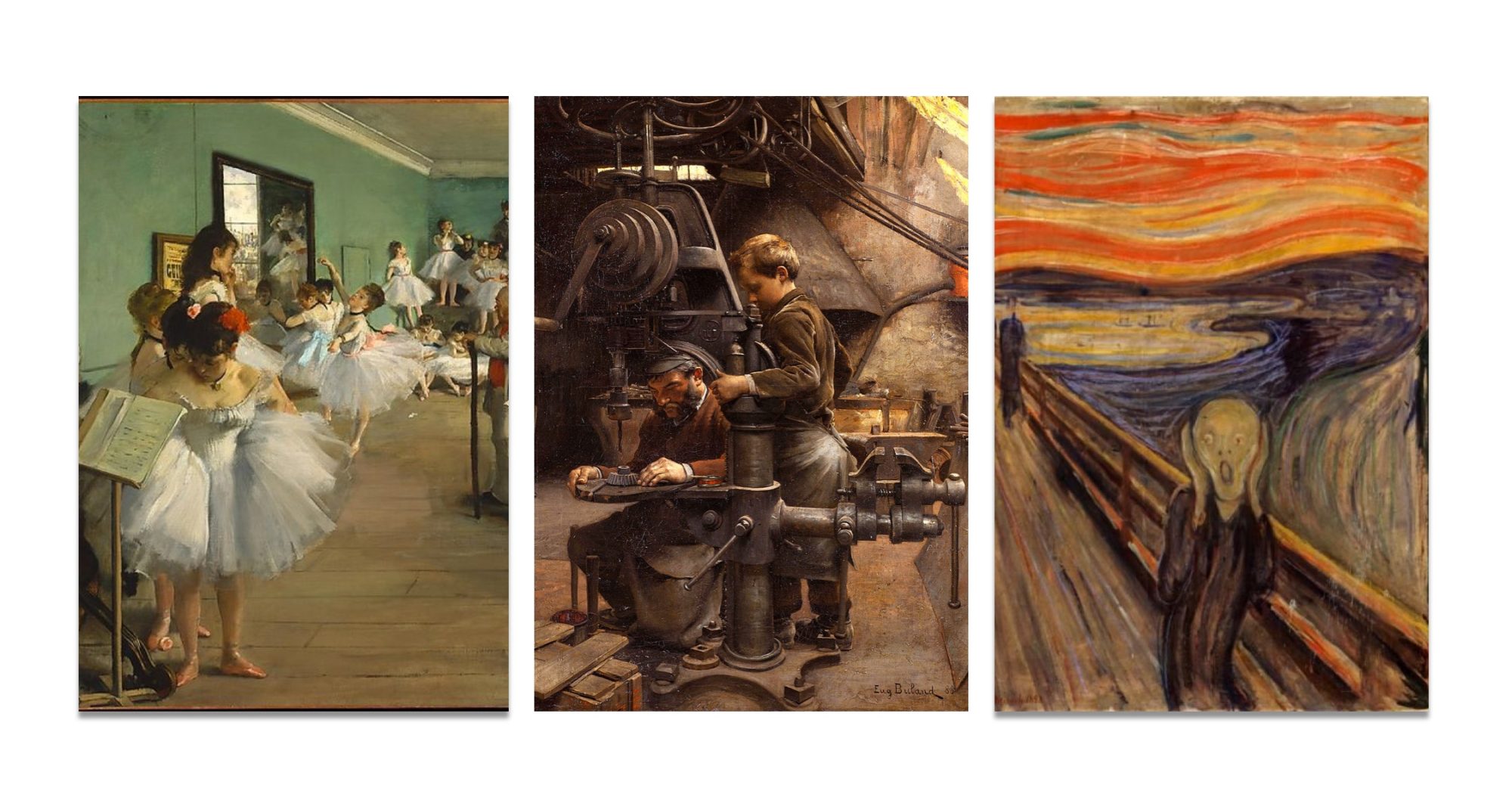 Dostoyevsky in Notes From Underground writes about a man who stumbles into a brothel late at night after having a bad night out with a few acquaintances. He’s matched up with a girl and sleeps with her while in a stupor; detached from his own body. When he comes to he’s filled with guilt and shame, “Now I suddenly got a general picture of debauchery–inane and as revolting as a spider–that starts without feeling, coarsely and shamelessly, at the culmination point of real love” (157). However, he stays, feeling caught in a conversation with the young girl, 20 years old. He tells her that she should get out now while she still can, while she’s still young and beautiful so she can marry. She says dismissively that marriage doesn’t always make people happy. To convince her, the man reveals her nasty position in the House and her indebtedness to the madame, “…you’ve been a slave from the very beginning. Yes, a slave! You’ve given up everything. You’ve given up your freedom, and even if you try breaking the chains one day, you won’t be able to–you’ll only get further entangled in them” (161). She’s young and doesn’t fully understand how she has the rest of her life ahead of her. She’s throwing her life away if she stays in the brothel. Trying to scare her he tells her that she’ll catch a disease one day, but so long as her body is still useful the madame won’t care that she’s sick, “Consumption is a peculiar disease. It’s not like a fever, you know. A consumptive keeps hoping and cheering himself up till the very last minute… And that works to madame’s advantage… You’ve sold yourself to her and, furthermore, you’re in debt to her” (170). While he may be exaggerating and only trying to get a rise out of this girl it remains true that she is a slave to the madame she works for. So young, yet her life is no longer her own. Her lifestyle will be the end of her some day if she doesn’t get out now.
Dostoyevsky in Notes From Underground writes about a man who stumbles into a brothel late at night after having a bad night out with a few acquaintances. He’s matched up with a girl and sleeps with her while in a stupor; detached from his own body. When he comes to he’s filled with guilt and shame, “Now I suddenly got a general picture of debauchery–inane and as revolting as a spider–that starts without feeling, coarsely and shamelessly, at the culmination point of real love” (157). However, he stays, feeling caught in a conversation with the young girl, 20 years old. He tells her that she should get out now while she still can, while she’s still young and beautiful so she can marry. She says dismissively that marriage doesn’t always make people happy. To convince her, the man reveals her nasty position in the House and her indebtedness to the madame, “…you’ve been a slave from the very beginning. Yes, a slave! You’ve given up everything. You’ve given up your freedom, and even if you try breaking the chains one day, you won’t be able to–you’ll only get further entangled in them” (161). She’s young and doesn’t fully understand how she has the rest of her life ahead of her. She’s throwing her life away if she stays in the brothel. Trying to scare her he tells her that she’ll catch a disease one day, but so long as her body is still useful the madame won’t care that she’s sick, “Consumption is a peculiar disease. It’s not like a fever, you know. A consumptive keeps hoping and cheering himself up till the very last minute… And that works to madame’s advantage… You’ve sold yourself to her and, furthermore, you’re in debt to her” (170). While he may be exaggerating and only trying to get a rise out of this girl it remains true that she is a slave to the madame she works for. So young, yet her life is no longer her own. Her lifestyle will be the end of her some day if she doesn’t get out now.
Oscar Wilde’s poem The Harlot’s House depicts two young lovers passing by the house of a harlot. Everything seems whimsical and like an eternal ball in the beginning, “Like strange mechanical grotesques,/Making fantastic arabesques,/The shadows raced across the blind.” Then, slowly, the fun becomes tainted and the women turn into marionettes; automatons; skeletons that don’t control their own lives anymore. The man’s lover is drawn in to the music, which then ceases and, “…down the long and silent street,/The dawn, with silver-sandalled feet,/Crept like a frightened girl.” In this case, the women involved are the frightened girls. They may adult roles and get themselves into situations far too mature for them, but in the end they are only children; children in harlot’s clothing.
The women who are involved in these acts of debauchery are only very young women, they would have to be to keep men’s interests. There’s a sort of splendor at the thought of entertaining men and living each night as if it were a party. However, in the end their looks fade, they age, and the lives they took up no longer satisfy. They become stuck in the world that so lovingly took them in, the flowers begin to wilt, and they become slaves.
References:
